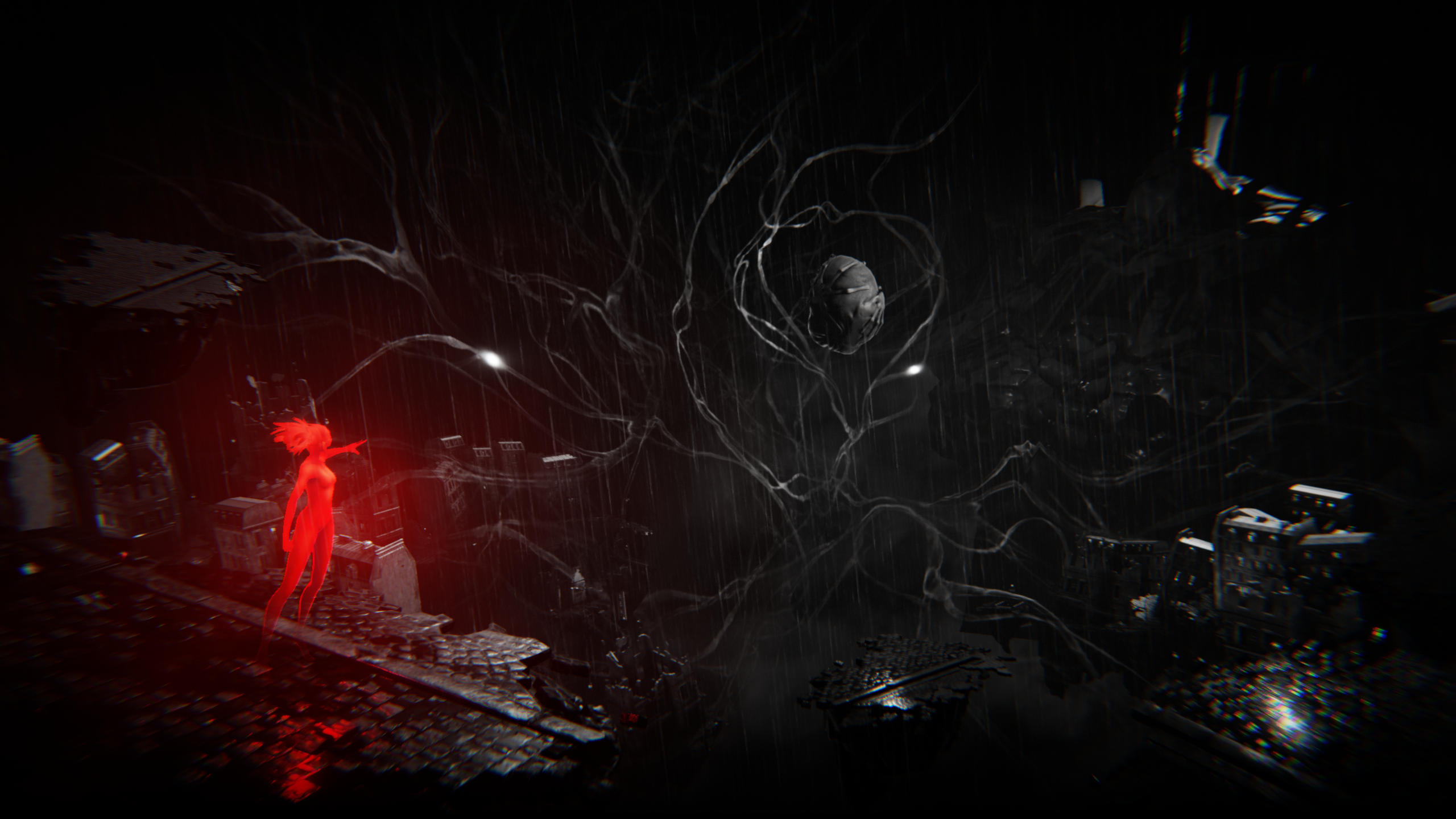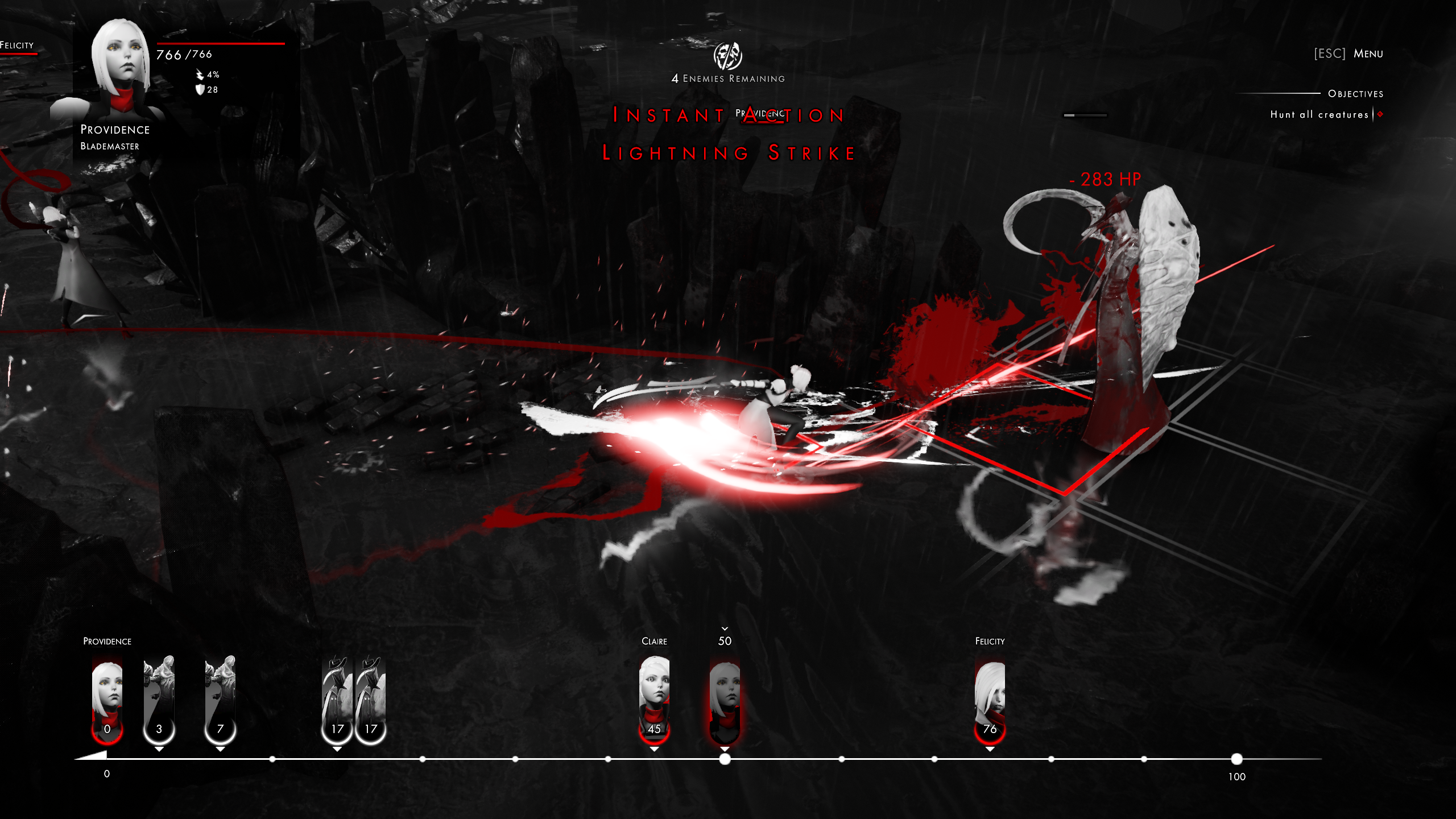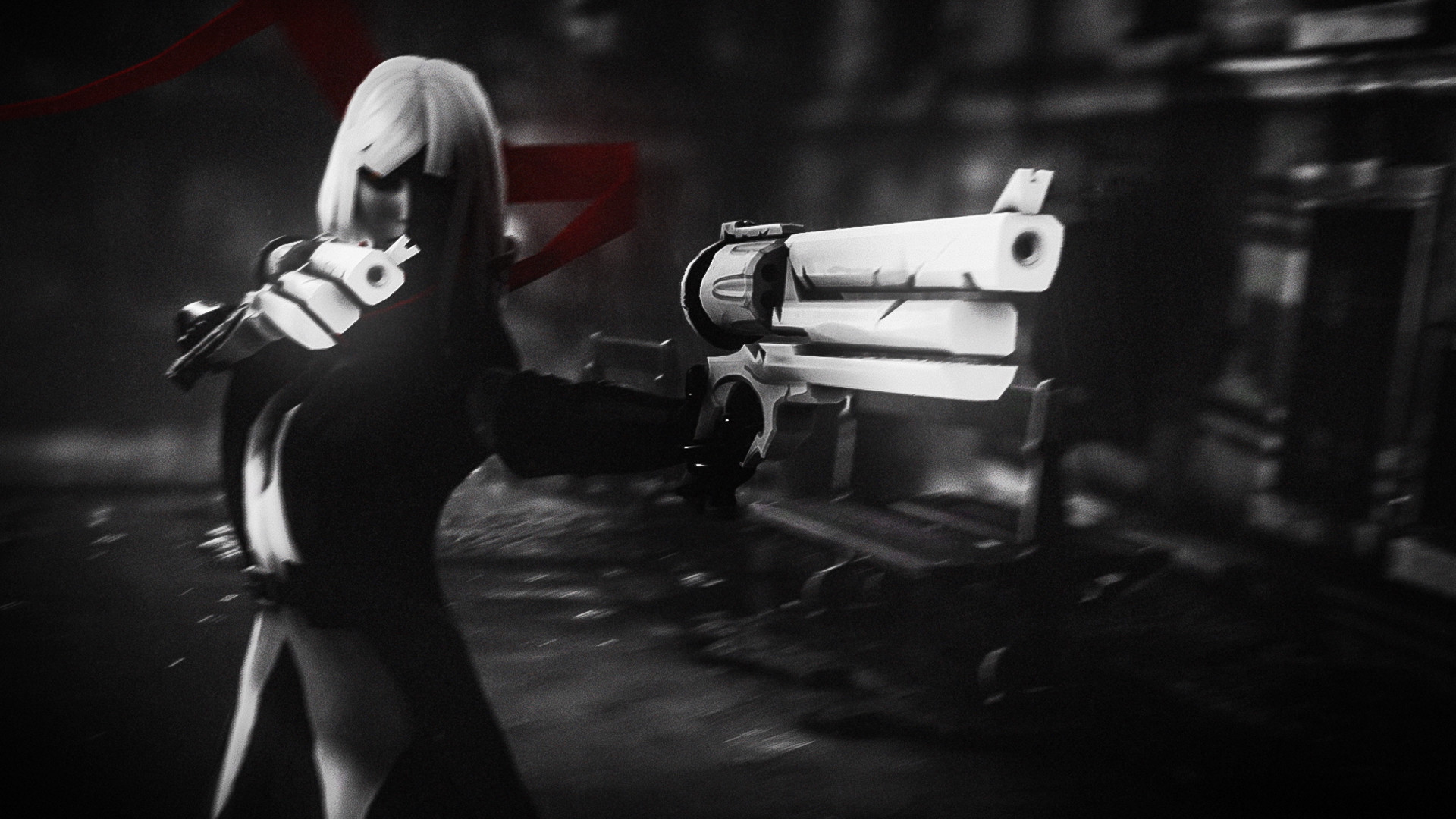Our Verdict
Owns its bleak theming completely, even if it can get a little repetitive.
PC Gamer's got your back
What is it? Roguelike turn based tactics game about death and failure
Expect to pay $35/£30
Developer Lightbulb Crew
Publisher Focus Home Interactive
Reviewed on Intel i5, 16gb RAM, Nvidia GTX 1660
Multiplayer? No
Link Official site
"You will fight, you will fail, you will rise again." This is Othercide's motto, and it deserves credit for sticking to the bit. It doesn't just say it's about a hopeless war against encouraging darkness, it commits to the theme. Othercide mixes turn-based tactical combat with the repetition and incremental progress of roguelikes. It takes the threat of losing your best soldier from XCOM and makes that threat a certainty. You will lose, and then you will try again.
You are The Mother, some sort of eldritch being fighting against Suffering, with a capital S, to protect The Child, using resurrected soldiers called The Daughters. Other extremely capitalised nouns also feature heavily. It's not a style of writing I'm usually a fan of, but big and abstract suits Othercide very well. It doesn't really need to define its terms—what matters is atmosphere, and this game is dripping with it.
The doom and gloom atmosphere isn't just confined to the striking black and white visuals however, Othercide really commits to the bit. Every system in the game is leveraged towards this feeling of hopelessness. Take healing, for example: there isn't any. The only way for one of your Daughters to recover health is to sacrifice a Daughter of equal or higher level. Even worse, some of your most powerful abilities spend health to activate. This means that any slip up, any damage taken will sooner or later result in the loss of a star performer. You aren't going to get attached to your soldiers here, especially given the lack of real cosmetic customisation, instead you are going to see your Daughters as a resource to be gently fed into the meat grinder of the forever war.

How does the game get away with being this lethal? Because, as I said earlier, it's also a roguelike. Each run (or "Recollection") of Othercide consists of a series of turn-based battles against waves of monsters, leading up to a climactic boss fight. Lose that boss fight, run out of troops or just decide you've had enough, and you'll have to start the loop again, but this time with a series of powerful boosts or "Rembrances" that can improve the whole team. Early on I got one that gave every Daughter 30% more health. Another gave me a free resurrection on a dead Daughter (including those from previous games). These are big, meaty bonuses that make a second attempt far easier.
The idea then, is to use these boosts to cut down on repetition, but it only partially works. After the first run I understood the game well enough that the routine 'hunt' missions that make up most of the cycle became easy, but that first boss still seemed an impassable wall. If I'm honest there was a big chunk of my playthrough (somewhere between hours two and ten) where I was constantly bouncing between trivial main missions and an impossible boss fight. Yet each time I felt like quitting, I learned a new trick—a new system that I'd missed at first glance that gave me an edge. Eventually I figured out how to use "Memories", small boosts that slot into individual abilities to improve them, to boost up the damage of my ranged attacks, letting me slowly chip away at that beastly boss's hit points without being hit by devastating counter-attacks.
The combat system itself is a pleasing puzzle, mostly reliant on manipulating the initiative tracker that is a constant presence along the bottom of the screen. Both Daughters and monsters have the ability to manipulate the initiative: some attacks can push an enemy further down the initiative order, while big, powerful abilities often act on a delay, taking several ticks to fire.

Let's draw an example: one of my Daughters, Douce, has been targeted by an enemy Curse Therapist with a delayed attack called Massive Shot, which will fire at initiative 30. If Douce had a turn before 30, she could simply move out of range, but she doesn't go until 50. So instead I move up Melody, a Blademaster (melee DPS class), who goes at 25. Melody could use her own delayed attack, Imbued Blade, which would kill the Therapist in one hit, but that wouldn't fire until step 50, so instead I go for a simpler attack that works immediately. Unfortunately that doesn't do as much damage, so I have to attack several times.
That's where another mechanic comes up. If I'd only spent 50 action points, Melody would be able to go again in 50 ticks. But as she's used up more, she has to wait a whole 100 ticks. She's effectively skipped one of her turns to do more right now. It seems like a lot to keep track of, but it's all fairly intuitive once you get the hang of it, and there's a clever Chess-like quality in figuring out how to save a unit from impending doom.
I think Othercide will split people. It is very easy to come up short against a boss several times and feel like you're doing a lot of busywork for very little progress. When I was failing to beat that first boss I had a far lower opinion of it, but when I finally made that breakthrough I got a great sense of accomplishment, as well as Remembrances that let me skip that boss and start my Daughters at a higher level, avoiding the grind that had tormented me entirely. Whether Othercide is for you will depend on whether you have the patience for a roguelike where you can spend a good eight hours feeling like you're making no progress whatsoever, before suddenly breaking through. It surprised me to discover it, but it turns out I do.
Owns its bleak theming completely, even if it can get a little repetitive.


